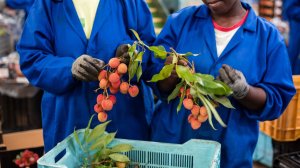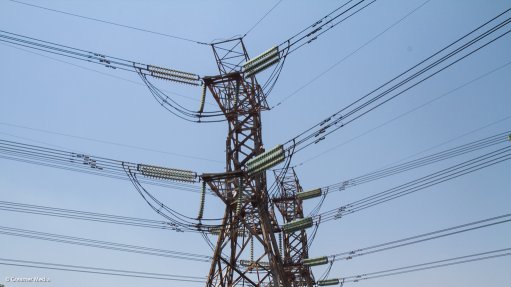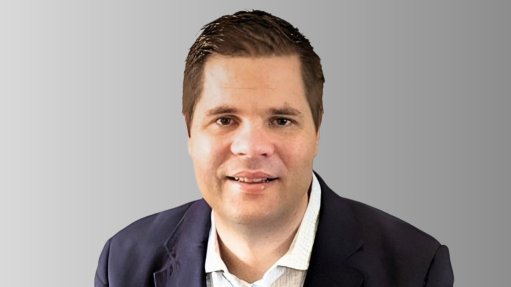How outsourced refrigeration can solve Africa’s cold chain challenges
Food loss is a critical issue in Africa, with half of the continent’s staple food lost post-harvest or before reaching the market, according to the Rockefeller Foundation.
In sub-Saharan Africa, 37% of food is wasted, amounting to between 120 kg and 170 kg per capita per year. This alarming level of wastage is largely due to inadequate cold storage infrastructure and inefficiencies in the cold chain.
The economic and social impacts of food loss are vast. It results in revenue losses for farmers and the waste of resources such as water, fertilisers, energy and land.
With one in every five Africans facing hunger, addressing the cold storage challenge is not just necessary but imperative.
A new approach to cooling efficiency
Traditionally, food producers and manufacturers in Africa have owned, operated and maintained their own cooling systems. This approach requires substantial capital investment and comes with the burden of ongoing costs for repairs, upgrades and utilities.
For many stakeholders in the agricultural value chain, these costs are prohibitive, leading to reliance on inefficient and outdated refrigeration technologies.
The answer to this challenge may lie in servitisation, specifically through a model known as Cooling-as-a-Service (CaaS).
CaaS represents a shift from owning and maintaining cooling systems to a pay-per-service model. Instead of purchasing refrigeration equipment, manufacturers subscribe to a service that provides them with cooling solutions. The CaaS partner takes responsibility for owning, operating and maintaining the system, while the manufacturer pays a fixed fee per unit of service.
This model offers several advantages, including freeing up capital, reducing operational expenses, and protecting users from cost fluctuations. Moreover, CaaS provides access to cleaner, more efficient cooling technologies and enhances visibility on system performance through continuous measurement, verification and tracking.
CaaS and sustainability
Beyond the immediate benefits, CaaS also contributes to Africa’s decarbonisation efforts.
The two major sources of harmful greenhouse-gas (GHG) emissions in air-conditioning and refrigeration systems are indirect CO2 emissions from operation and the leakage of hydrochlorofluorocarbons (HFCs) into the atmosphere. Inefficient cold chain technologies exacerbate these issues by consuming excessive energy and increasing the carbon footprint.
The global push to phase down HFCs, as seen in the Kigali Amendment to the Montreal Protocol, has led 152 states to commit to reducing HFC consumption and production gradually.
This commitment includes optimising the environmental efficiency of heating, ventilation, air-conditioning, and refrigeration, or HVAC&R, systems during the transition to natural refrigerants and alternative technologies.
However, many users of cooling technology in Africa lack the resources and expertise to diagnose and track inefficiencies and leakages in their systems.
In response, African leaders are increasingly crafting policies and frameworks to support the adoption of cleaner cooling technologies.
For instance, the SADC Centre for Renewable Energy and Energy Efficiency (SACREEE), a member of the CaaS Alliance, has launched the Industrial Efficiency Program (SIEEP). This programme provides seed funding and training to promote the market adoption of CaaS.
African CaaS success stories
CaaS is already making an impact across the continent.
In Nigeria, Cold-hubs provide solar-powered walk-in cold stores for off-grid storage, extending the shelf life of perishable produce from two days to 21 days, significantly reducing food wastage in rural farming communities.
In Kenya, SokoFresh, an award-winning social enterprise, has reduced post-harvest losses for its customers from 40% to 2%, benefiting over 7 500 smallholder farmers.
Similarly, in South Africa, Energy Partners has unlocked access to CaaS for large-scale producers and manufacturers, achieving up to 40% increased energy efficiency and avoiding 6 000 t of GHG emissions annually for one of the country’s largest dairy producers.
These examples demonstrate the potential of CaaS to transform Africa’s energy landscape and food security.
Scalability: the key to long-term success
While these success stories are promising, the true impact of CaaS lies in its ability to be scaled across the continent. The involvement of financial institutions, development finance institutions, and policymakers is crucial in driving greater adoption and stimulating the market.
To meet the growing demand for efficient cooling in agriculture, food processing, health services, and human comfort, Africa needs a new approach to thinking, funding, constructing, and delivering energy solutions.
At scale, CaaS offers a pathway to enhancing the continent’s cold chain infrastructure and securing its food future.
Learn More: See Energy Partners’ Samuel Jacobs’ in-depth discussion on the challenges facing Africa’s cold chain and how CaaS can address them here.
Article Enquiry
Email Article
Save Article
Feedback
To advertise email advertising@creamermedia.co.za or click here
Press Office
Announcements
What's On
Subscribe to improve your user experience...
Option 1 (equivalent of R125 a month):
Receive a weekly copy of Creamer Media's Engineering News & Mining Weekly magazine
(print copy for those in South Africa and e-magazine for those outside of South Africa)
Receive daily email newsletters
Access to full search results
Access archive of magazine back copies
Access to Projects in Progress
Access to ONE Research Report of your choice in PDF format
Option 2 (equivalent of R375 a month):
All benefits from Option 1
PLUS
Access to Creamer Media's Research Channel Africa for ALL Research Reports, in PDF format, on various industrial and mining sectors
including Electricity; Water; Energy Transition; Hydrogen; Roads, Rail and Ports; Coal; Gold; Platinum; Battery Metals; etc.
Already a subscriber?
Forgotten your password?
Receive weekly copy of Creamer Media's Engineering News & Mining Weekly magazine (print copy for those in South Africa and e-magazine for those outside of South Africa)
➕
Recieve daily email newsletters
➕
Access to full search results
➕
Access archive of magazine back copies
➕
Access to Projects in Progress
➕
Access to ONE Research Report of your choice in PDF format
RESEARCH CHANNEL AFRICA
R4500 (equivalent of R375 a month)
SUBSCRIBEAll benefits from Option 1
➕
Access to Creamer Media's Research Channel Africa for ALL Research Reports on various industrial and mining sectors, in PDF format, including on:
Electricity
➕
Water
➕
Energy Transition
➕
Hydrogen
➕
Roads, Rail and Ports
➕
Coal
➕
Gold
➕
Platinum
➕
Battery Metals
➕
etc.
Receive all benefits from Option 1 or Option 2 delivered to numerous people at your company
➕
Multiple User names and Passwords for simultaneous log-ins
➕
Intranet integration access to all in your organisation



















